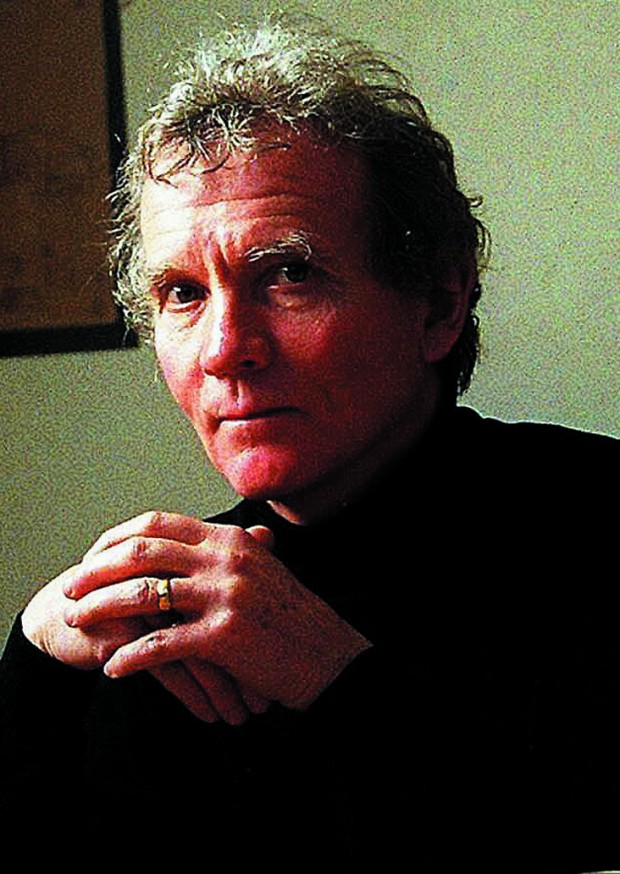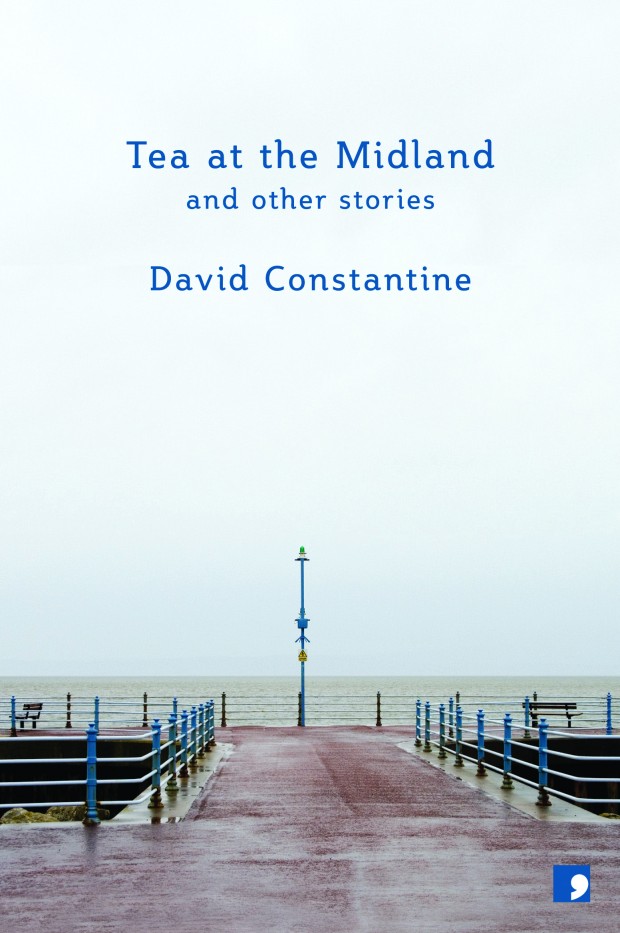You have no items in your cart. Want to get some nice things?
Go shoppingThere’s a moment in C. S. Lewis’s The Voyage of the Dawn Treader when Lucy, walking down the corridor of a magician’s house, catches sight of what she thinks is “a wicked little bearded face” grinning at her from a wall. It is in fact a mirror, surrounded by hair and a beard; and it is her face she has seen. She tells herself the mirror is harmless, but she is unsettled to see her own face so changed.
In David Constantine’s short story “Asylum”, a therapist asks a patient to look in a mirror and describe herself. The mirror is “a lovely thing, face-shaped and just the size of a face, without a frame, the bare reflecting glass.” The patient thinks she is turning into an owl, and for a moment, looking at her, the therapist sees it too—“…if you jointed the arcs of the brows with the arcs of shadow below the eyes, so accentuating the sockets, yes you might make the widening stare of an owl.”
Seeing ourselves unexpectedly reflected, transformed by context—these mirror-moments are what make great short stories, and they pop out often from David Constantine’s collection, Tea at the Midland. In the title story, which won the 2010 BBC National Short Story Award, a couple argue over the merits of an Eric Gill freeze in a hotel café.
He sat in a rage. Whenever she turned away and sat in silence he desired very violently to force her to attend and continue further and further in the thing that was harming them.
I was brought up short by this line—such a precise reflection. So familiar, that point in an argument when the desire to go on hurting, being hurt, overrides all else. Great short stories reflect us back at ourselves.
The stories in this collection are often long, and they demand an investment, of concentration. Constantine doesn’t use speech marks. Dialogue is muddled together with no more than a capital letter or a dash to mark its start or end. The style can sometimes be frustrating, forcing the eye back over a line already read to check who spoke it, but where it is used most effectively it is powerful. Here, dialogue is an echo in the head, indistinguishable from what a character sees or feels. The story is their interior life, and this stream of experience pulls us under with them. In “Mr Carlton”, a recently bereaved widower drives north on the day of his wife’s funeral, destroying his mobile phone after sending a last message to his daughters. A traffic jam on the motorway causes him to leave his car, and he sees a house in the shadow of the motorway flyover.
The young woman at the barrier took Mr Carlton’s arm. I’m frightened, she said. You don’t mind, do you? What do you think has happened? It must be very serious to close both carriageways. I heard a man say it was a fire. And somebody else said ten minutes earlier we’d have been in it. My husband said not to worry, they’ll clear it eventually, if we’re here much longer they’ll bring food and water round. He’s right, said Mr Carlton, patting her hand that was gripping his arm. We’re quite safe here. How still it is. I was wondering do they have grandchildren who visit occasionally. I hate it when you’re on a train, the young woman said, and you stop in the middle of nowhere and after a long time they tell you there’s a fatality on the line. Yes, said Mr Carlton, that is a horrible expression. And everybody’s only wanting to get home, the young woman continued, and they don’t are about the fatality in person. But it’s horrible sitting there knowing that someone is chopped to pieces further up. And this is worse than that. It has blocked both carriageways.
This is soundscape, babble. But hearing this conversation through the filter of Mr Carlton’s consciousness, out of the white noise come the shapes of his recent bereavement, the question of his final destination, why he has cut off contact with his family.
I admit to an initial frustration with some of these stories. It takes a while to feel your way into them. A commitment is required early on to persevere with a slow-growing story or with Constantine’s oblique style. In “Charis”, a woman talks to her dead sister. The story seems to slip naturally into the first person and then is jolted out of it again, alienating with its strangeness.
But this investment of effort almost invariably pays off with moments of beauty and revelation. In “An Island”, one of the longest stories in the book, a man stays as a virtual hermit on a remote island. It builds gradually in a series of letters detailing small events, landscapes, and thoughts which soon become immersive.
I should have taken each by the hand, there and then, and summoned up a syrtaki from Ithica or Samothrace and danced the lumbering graceless dance of my leaden soul, right there among the dressed-up islanders, between two girls, danced, and they would have harkened either side of me and heard the tune in my head and taken it up, lifted and lightened it, and led me and I’d have followed, dancing, dancing, ugly bear of a soul, dancing until I was changed.

David Constantine is also a poet, and this is clear in his precise and weighted prose, often very beautiful, like this passage from “Fault”, a story of a couple on a country walk, feeling around the fractures in their relationship.
And when a skylark started up and the singing of it rose to a height and tippled down, it thrilled her like a pure happiness finding its place of resurrection, there in the present, quickened on a scrap of earth and in a shaft and a fountain of sky.
Constantine is not a writer motivated by plot. His stories centre on moments, conversations, meetings that feel like small details picked out from a larger tapestry. His characters are strange and vividly drawn—the irredeemably lonely, the failures, the mentally and physically ill. These are outsider stories, searches for salvation that sometimes do not succeed. Sometimes, the possibility of happiness reveals itself from a distance, like the house Mr Carlton glimpses from the motorway with its contented inhabitants: seemingly inaccessible—and yet there, still there.
The conflict between loneliness and the overwhelming urge to connect runs through the collection. “Strong Enough to Help” is a sad but lovely story of a lonely man’s encounter with a survey-taker who knocks at his door. Arthur Barlow sits down to write poetry, as he always does on a Saturday morning, wearing his best suit. Then suddenly the language of his family, the sayings and turns of phrase he grew up with, possess him. Speaking one of these phrases invokes his dead Gran Benson, but it also seems to invoke a visit from Gladys, a woman with a very different voice.
One last thing, said Arthur Barlow. Did your grandmother or your grandmother’s sister ever say, ‘Sit thee down, lass’ or ‘Nowt lost where pigs are kept’ or ‘I’ll make one less’ – and go slowly off to bed? – Gladys laughed, such a resplendent laugh. Bless you Mr Barlow, of course they never did. They said things like, ‘Walk-good keeps good spirit’, ‘Hungrybelly an Fullbelly dohn walk same pass’ and ‘When lonely man dead, grass come grow him door’.
We inherit our “voice from home” as part of our identity. Arthur and Gladys’s exchange of voices is the beginning of an understanding that might just cross age, culture and loneliness.
In the mesmerizing story ‘The House by the Weir and the Way”, two old women live as a couple in a remote house on a pilgrim trail, a relationship that began in passion but has ended with them trapped by each other. The weir by their house echoes the weight of old age, worry and fear that bears down on them.
Sabela stood there close in the din and stink of the weir and its slanting topple mesmerized her. At this time of the year the whole phenomenon was at its most violently self-assertive. This was what the river did in spring and by the weir the nature of its deep was made most manifest. The river ingested the mountains’ snow and ice, bulked itself up with them and ran full tilt for the distant sea.
There is a weir also in the closing story of the collection, “Romantic”. Again, it is a terrifying thing, the force of it.
She can smell it on him when he comes in, his voice sounds battered to death by the weight of water, the river’s slanted breadth, the unspeakable amount of toppling-over water and always more and more to come from the sodden hills and the countless stream to the west of Crook.
A weir reveals the force of the river, constantly happening, unstoppable, off somewhere else more quickly than we can comprehend. There is no chance of standing still, and the current is sometimes too much for us. But in this last story, a man who we thought perhaps dead comes through the river in a baptism, a rebirth, his clothes gone, naked into a potential new life.
There is a hope of salvation then, a salvation that perhaps comes with truly recognising ourselves. The mirror in “Asylum” is kept “under lock and key”. It is a dangerous thing, in the wrong hands. That danger runs through this collection—the risk and allure of the mirror-moment, of seeing ourselves clearly where we do not expect to meet ourselves in “the bare reflecting glass” of the story.
Tea at the Midland and Other Stories is available from Comma Press from Thursday 6th December 2012. Thanks to Comma Press for providing a review copy.

About Emily Cleaver
Emily Cleaver is Litro's Online Editor. She is passionate about short stories and writes, reads and reviews them. Her own stories have been published in the London Lies anthology from Arachne Press, Paraxis, .Cent, The Mechanics’ Institute Review, One Eye Grey, and Smoke magazines, performed to audiences at Liars League, Stand Up Tragedy, WritLOUD, Tales of the Decongested and Spark London and broadcasted on Resonance FM and Pagan Radio. As a former manager of one of London’s oldest second-hand bookshops, she also blogs about old and obscure books. You can read her tiny true dramas about working in a secondhand bookshop at smallplays.com and see more of her writing at emilycleaver.net.





